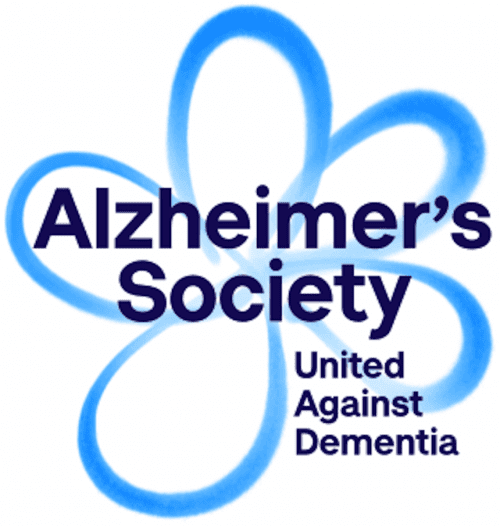Charity coalition says ‘never again’ as Alzheimer’s Society Cymru investigation reveals 92% report pandemic causing more rapid increase in dementia symptoms.
They are among more than 34,000 with the condition to have died in England and Wales from Covid-19, making people with dementia the worst hit by coronavirus.
In addition, new calculations from the Office for National Statistics (ONS) reveal that deaths of care home residents, where at least 70% of people have dementia, are 30% higher than previously thought.
There have been almost 12,000 (11,624) deaths since January 2021, which includes care home residents who have died in hospitals or elsewhere.
A coalition of dementia organisations including Alzheimer’s Society Cymru, Dementia UK, John’s Campaign and TIDE (together in dementia everyday), have come together to say never again will those affected face such hardship and loss.
Alzheimer’s Society Cymru’s investigation has shown the pandemic’s toll goes even further than deaths from the virus.
In a survey of 1,001 people who care for a family member, partner or someone close to them with dementia3, an overwhelming 92%4 said the pandemic had accelerated their loved one’s dementia symptoms; 28% of family carers said they’d seen an ‘unmanageable decline’ in their health5, while Alzheimer’s Society Cymru’s support services have been used over 3.6 million times since the pandemic began.
Alzheimer’s Society Cymru’s Dementia Connect support line has been flooded with calls from relatives revealing how quickly their loved ones are going downhill, losing their abilities to talk or feed themselves.
Nearly a third (32%) of those who lost a loved one during the pandemic thought that isolation/lack of social contact was a significant factor in that loss.6
People with dementia in care homes have been cut off from their loved ones for almost a year, contributing to a massive deterioration in their health.
A third (31%) reported a more rapid increase in loved ones’ difficulty speaking and holding a conversation, and quarter (25%) in eating by themselves.7
Only 13% of people surveyed have been able to go inside their loved one’s care home since the pandemic began. Almost a quarter (24%) haven’t been able to see their loved one at all for over six months.8
Alzheimer’s Society Cymru is calling for meaningful – close contact, indoor – visits to be the default position without delay from 8 March.
Dementia organisations, including this coalition, joined forces as One Dementia Voice in July 2020 to call for designated family carers to be given key worker status to enable care home visits to loved ones.
Family carers are integral to the care system, and to the people for whom they care – it’s they who know how to get their loved ones to eat, drink, take medicine – and are often the first to know when something is wrong.
While the UK Government recently announced that indoor visits will restart for one family member from 8 March (in England only), the coalition emphasises that this must be the default position and that blanket bans on visitors (where there is no coronavirus outbreak) are unacceptable.
The pandemic has not just hit those in care homes. With 470,000 people with dementia living in the community, many are reliant on unpaid family carers for support. 42% of these carers say lockdown has caused a rapid increase in feelings of depression in their loved one, while over half (54%) say they’ve seen a rapid loss of memory.9 Carers themselves have been hugely affected – seven out of ten (73%) say that the last year has negatively impacted their mental and physical health with anxiety (42%) and exhaustion (34%) the most cited symptoms.10 Over half (54%) saying that the pandemic has left them feeling less able to care for their loved one.11
Bethan Ashford, from Cardiff, lost her mum, Sharon, to Alzheimer’s last year. Sharon was just 58 years old. Bethan said:
“My mum was a super mum and I can’t remember her complaining about anything. When me and my brothers were growing up, my mum worked evening shifts three days a week so that she could be there in the days to look after us and do the school runs whilst my dad worked. She would always be doing something with us. I honestly don’t know where she got all her energy from.
“My mum was diagnosed with Alzheimer’s in July 2018 at the age of just 56 with the same condition as her dad had. My mum was having numerous amounts of tests and scans for just short of two years prior to this. The scans of her brain were coming back normal but she was struggling to hit her targets at work and there were visible signs that something wasn’t right. It didn’t come as a surprise to me when we were finally given the diagnosis, but I was still devastated.
“In November 2019, my mum was admitted to Barry Hospital on the Young Onset Dementia ward. She was becoming quite aggressive at home towards my dad so it was the right thing to do whilst they tried to sort my mum’s medication. We were all so shocked and confused at how quickly mum was deteriorating.
“In February last year, my mum stopped eating. She would refuse food but would still take liquids. This went on for a number of weeks. Then in March 2020, I received a call from my brother to say that mum was going to be receiving palliative care. Then on Friday 13 March 2020, my mum peacefully passed away. She had just turned 58.
“We were only allowed ten family members at mum’s funeral, which broke my heart. Why my mum? Why did she get Alzheimer’s? Why was it so rapid? Why now? The least she deserved was a send-off with all of her family and friends as she was loved by so many. But once this is all over, we’re planning a celebration of mum’s life.”
Sue Phelps, Country Director for Wales at Alzheimer’s Society Cymru, said:
“Coronavirus has shattered the lives of so many people with dementia, worst hit by the pandemic – lives taken by the virus itself, and many more prematurely taken due to increased dementia symptoms and, in part, loneliness. Each one leaves behind a grieving family.
“Family carers, too, have been buckling under the strain. We urge the Government to support people affected by dementia whose lives have been upended, putting recovery plans in place, but also making the legacy of Covid-19 a social care system that cares for the most vulnerable when they need it.”
Alzheimer’s Society Cymru, Dementia UK, John’s Campaign and TIDE (together in dementia everyday) are calling for:
- A Recovery Plan with the needs of people affected by dementia at their heart.
- Meaningful – close contact, indoor – visits to be the default position without delay from 8 March.
- An end to blanket bans on care home visits where there is no active outbreak.
- A recognition that family carers are integral to the care system.
- Family carers to register their carer status with GP surgeries to ensure they get vaccination priority, and call on NHS England to ensure all surgeries enable this
- Universal social care that we can all be proud of, free at point of use, like the NHS, like education – and providing quality care for every person with dementia who needs it.
Alzheimer’s Society Cymru’s Dementia Connect Support line – 0333 150 3456 – is available seven days a week, providing information and practical support for people affected by dementia. Or, if you speak Welsh, you can call our Welsh-speaking support line on 03300 947 400.
Help keep news FREE for our readers
Supporting your local community newspaper/online news outlet is crucial now more than ever. If you believe in independent journalism, then consider making a valuable contribution by making a one-time or monthly donation. We operate in rural areas where providing unbiased news can be challenging. Read More About Supporting The West Wales Chronicle


























